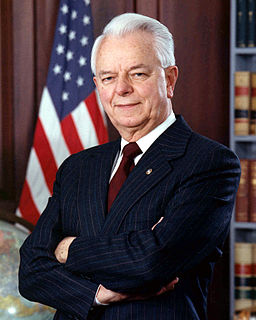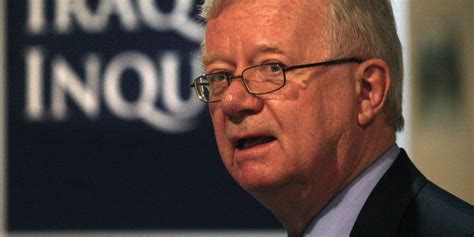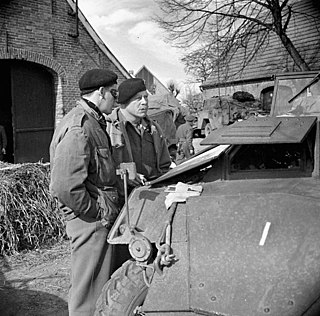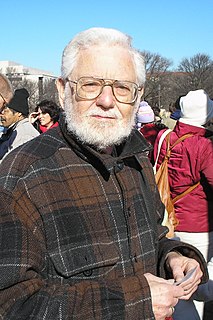A Quote by John Perkins
We've built the largest empire in the history of the world. It's been done over the last 50 years since World War II with very little military might, actually. It's only in rare instances like Iraq where the military comes in as a last resort.
Related Quotes
I think war and armed conflict is always the last of all the options you have on the table. I think you try to avoid that at all costs. Sometimes it's unavoidable. That's the lesson of World War II. I think the other lesson of the last 50 or 60 years, however, is that, the stronger the U.S. military, the stronger our defense capabilities, the stronger the chances for peace are.
In every major war we have fought in the 19th and 20th centuries. Americans have been asked to pay higher taxes - and nonessential programs have been cut - to support the military effort. Yet during this Iraq war, taxes have been lowered and domestic spending has climbed. In contrast to World War I, World War II, the Korean War and Vietnam, for most Americans this conflict has entailed no economic sacrifice. The only people really sacrificing for this war are the troops and their families.
Iraq has the second largest oil reserves in the world, it is right in the midst of the major energy reserves in the world. Its been a primary goal of US policy since World War II to control what the State Department called "a stupendous source of strategic power" and one of the greatest material prizes in history.
I voted against the war in Iraq. I voted against the first Gulf War. I think war is the last resort - the last option of a great military power like us. I think that we need to focus on building coalitions. Yes, ISIS must be destroyed. But it should be destroyed by a coalition of Muslim nations on the ground with the support of the United States and the other major powers in the air and in training the troops there.
However, there is a fundamental difference between the issue related to Japan's history and our negotiations with China. What is it all about? The Japanese issue resulted from World War II and is stipulated in the international instruments on the outcomes of World War II, while our discussions on border issues with our Chinese counterparts have nothing to do with World War II or any other military conflicts. This is the first, or rather, I should say, the second point.
Gore Vidal, Glenn Greenwald, Noam Chomsky, talk about how the U.S. became a national security state after World War II. Essentially there's this bipartisan foreign policy elite who've been calling the shots for the last few decades and they're clearly still in control regardless of how clownish or absurd they demonstrate themselves to be. There's no shaking their orthodoxy. To me it was the most depressing thing, these full-scale military interventions firsthand for a number of years, seeing how quickly we can get involved in another war with very little debate.
To engage in war is always to pick a wild card. And war must always be a last resort, not a first choice. I truly must question the judgment of any president who can say that a massive unprovoked military attack on a nation which is over 50 percent children is ‘in the highest moral traditions of our country.'
We have to recognize that the reason that the global order that we've enjoyed and almost take for granted over the last several years exists is that after World War II, the United States and its allies tried to build an antidote to what they had seen between World War I and World War II. There, they'd seen protectionism, beggar-thy-neighbor trading policies, so they said, we'll build an open international economy. And they did that.
The Russians and the Chinese have been making enormous investments in the military. We have the smallest Navy since 1916. We have the lowest number of troops since the end of the Second World War. We've got to work with Congress, and Donald Trump will, to rebuild our military and project American strength in the world.





































